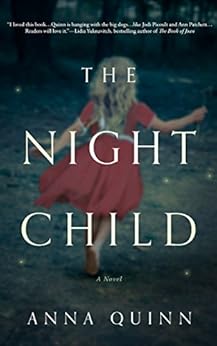Nora, a
high school English teacher, starts having visions of a small child. After the figure speaks to her, she decides
to go for therapy and ends up uncovering memories of traumatic childhood
experiences.
The plot is
very predictable. With the introduction
of dissociative identity disorder, the reader knows what Nora will learn since
the disorder most often forms after certain kinds of trauma. There have been any number of novels and
films which have followed the same narrative line. The plotting is clunky; characters are
introduced only to be useful to Nora in uncovering her lost memories. Elizabeth, Nora’s student, is a prime
example, as is John, the school principal.
Both are mentioned only at specific times and, otherwise, are totally
absent.
Characterization
is a definite weakness. For some reason,
I found it very difficult to connect with Nora.
Having been a high school English teacher myself, I was initially
interested in Nora’s teaching but her career is soon put on hold. Nora’s relationships which one would expect
to be developed aren’t. Specifically,
her relationship with her husband is only touched on. We are told that Paul is pre-occupied with
his career, but then there are outbursts like, “’God, this place is a shit hole!’”
and “’Christ, you look terrible.’” His
behaviour during Nora’s hospitalization is not realistic.
There are
other relationships too that need development.
From flashbacks, we learn that Nora had a difficult relationship with
her mother. Her mother is physically
abusive since Nora refers to bruises, but there are puzzling comments like, “Her
mother never uses the Lord’s name in vain when her father plays with James
[Nora’s brother].” Is this supposed to indicate
that Nora’s mother knows or suspects something and reacts by being harsher with
her daughter? Does she become an alcoholic
because of her suspicions?
Characters
remain two-dimensional. No one is really
fully developed. David, the therapist,
is just too good to be true. He spends
entire days at her bedside? The
psychiatrist never visits her again? John
appears only to be a contrast to Paul.
In the end, I will not remember any of the characters; none are
memorable.
There are
some things that had me puzzled. When
Nora is in the hospital, she is told she had a concussion. A concussion is treated with morphine? Not being able to talk “’happens sometimes
after a concussion’”? Chapter 22 is set on “the afternoon of
February 6” yet the nurse “brings her breakfast” and encourages her to enjoy
her “morning coffee”? A person who has
dementia in February, living “in a nursing home with locked doors” and who “can
barely leave his chair” was capable of a complicated Christmas surprise weeks
earlier? It seems that Nora has an
eating disorder (bulimia) but that is never addressed by the therapist?
I can only
describe this novel as mediocre. It
really needs more revision and editing. It
is not a long book so characters and relationships could be developed
further. As is, the book succeeds only
in being unremarkable and forgettable.
Note: I received an eARC of the book from the
publisher via NetGalley.

No comments:
Post a Comment